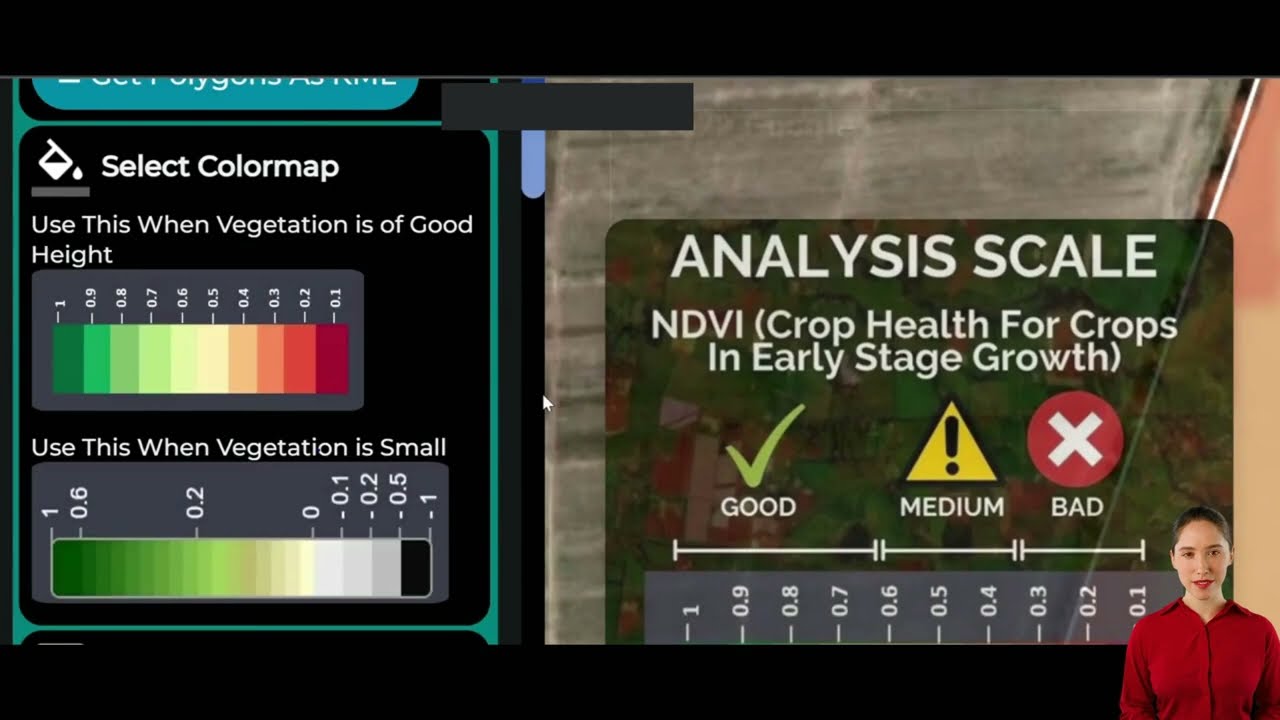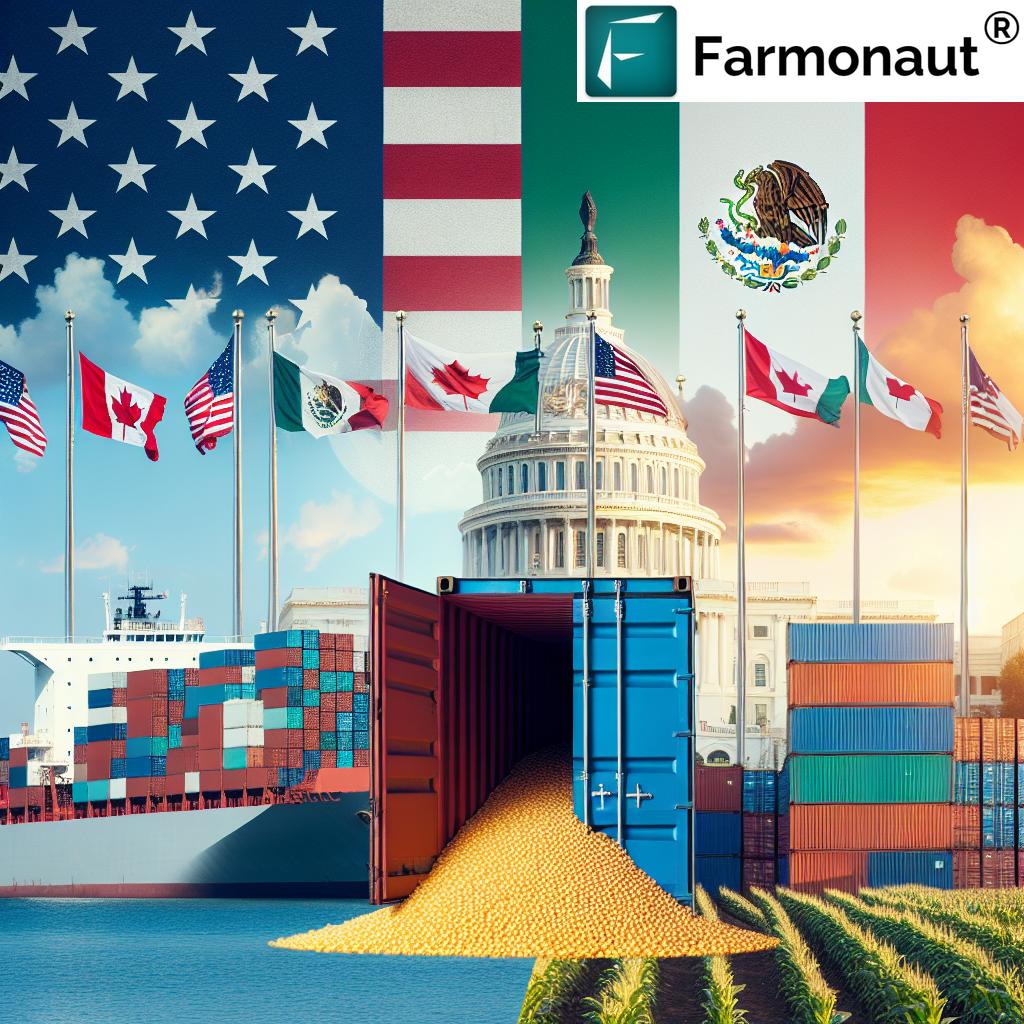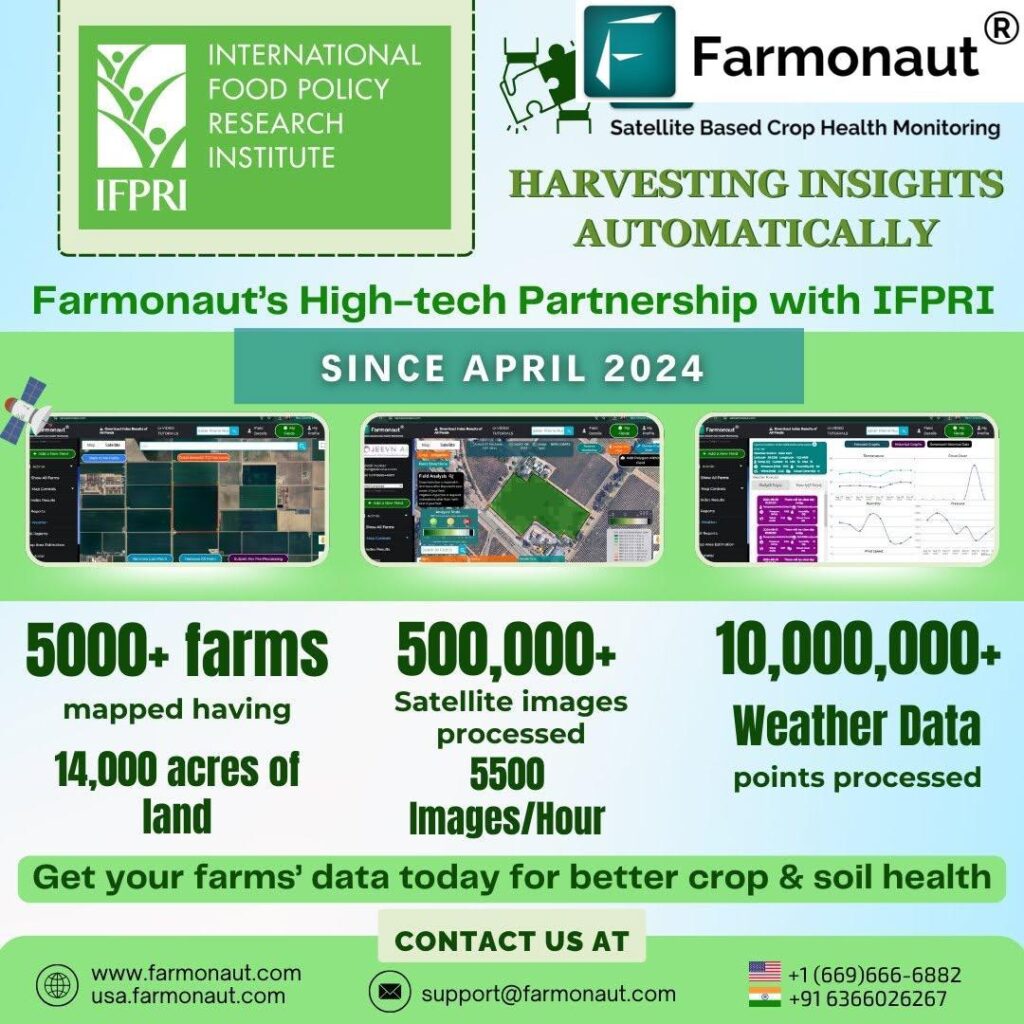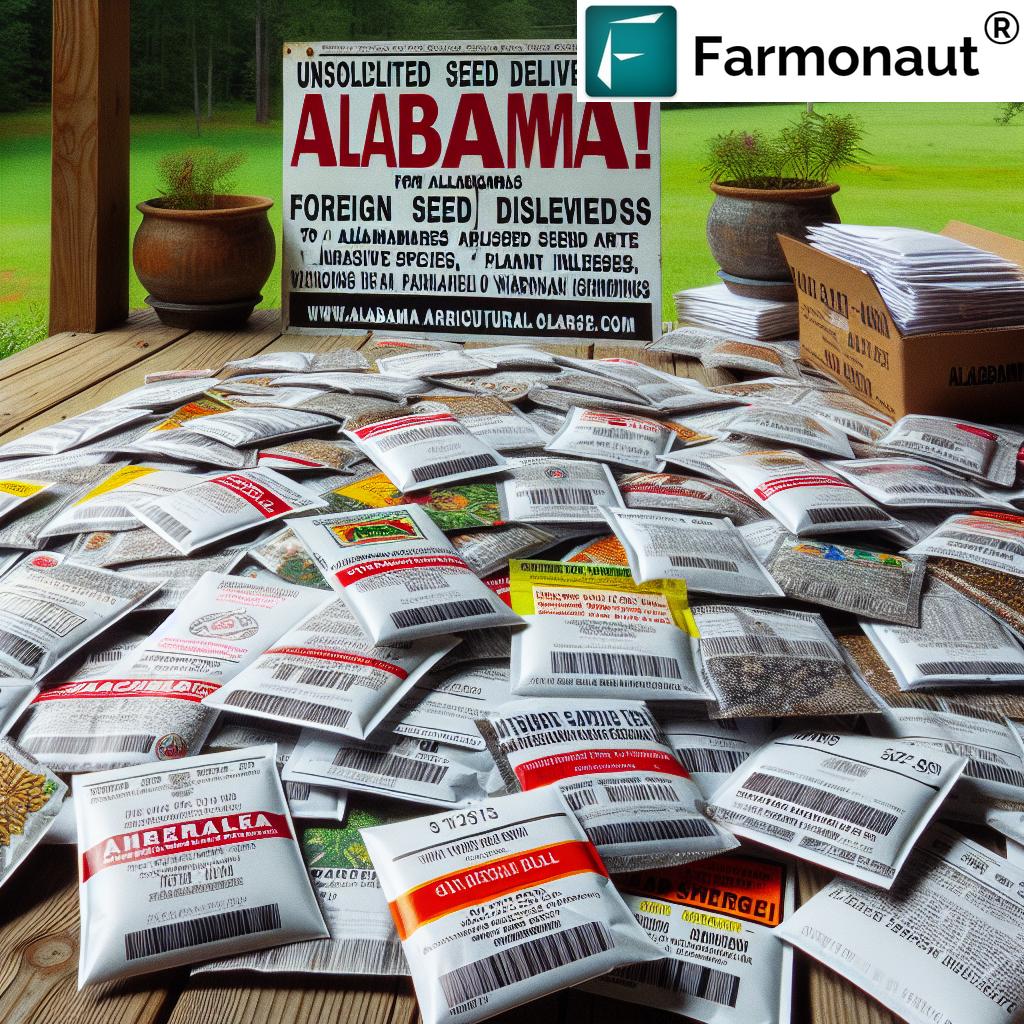Virginia Farmers Reap Record Conservation Grants: Middlesex County Leads in 2024 Agricultural Funding

“Middlesex County, Virginia farmers received $800,853 in conservation grants, part of a $1.5 million regional allocation in 2024.”
In a groundbreaking development for Virginia’s agricultural sector, Middlesex County farmers have emerged as the frontrunners in securing substantial conservation grants for the year 2024. This remarkable achievement not only highlights the region’s commitment to sustainable farming practices but also underscores the vital role of agricultural conservation in preserving our farmlands for future generations.
As we delve into this exciting news, we at Farmonaut recognize the significance of such initiatives in shaping the future of agriculture. Our mission to make precision agriculture accessible aligns perfectly with the goals of these conservation programs. Let’s explore how these grants are transforming the agricultural landscape in Middlesex County and beyond.
The Grant Allocation: A Closer Look
During a recent budget discussion held on January 24 at the Middlesex County Historic Courthouse in Saluda, county supervisors were pleasantly surprised by the substantial allocation of grant funds for agricultural conservation practices. The total distribution for 2024 amounted to an impressive $1,587,778, with Middlesex farmers securing the lion’s share at $800,853.
This allocation represents the largest amount awarded among the counties serviced by the Tidewater Soil and Water Conservation District (TSWCD), which also includes Gloucester and Mathews counties. The magnitude of this funding reflects not only the quality of Middlesex’s farmland but also the proactive approach of its farming community in adopting sustainable practices.
Understanding the Success of Middlesex County
The substantial grants awarded to Middlesex County farmers have raised questions about the underlying factors contributing to this success. TSWCD spokesperson Meredith Rose provided valuable insights into why Middlesex secured such a significant portion of the funding:
- Productive Farmland: Middlesex County boasts some of the most productive and valuable farmland within the TSWCD’s jurisdiction.
- Farmland Availability: The county has a greater quantity of farmland available compared to neighboring Gloucester and Mathews counties.
- Contrasting Land Conditions: While Gloucester County faces rapid urban development leading to decreased farmland, Mathews County has more low-lying areas less suitable for farming activities.
These factors position Middlesex County advantageously for receiving conservation grant funds, highlighting the importance of preserving high-quality agricultural land in the face of changing landscapes and development pressures.
The Virginia Agricultural Cost-Share Program: Driving Conservation Efforts
The 2024 grants are part of the Virginia Agricultural Cost-Share Program, a vital initiative promoting sustainable agricultural practices and land stewardship. This program facilitated funding for the implementation of conservation practices on over 25,313 acres of cropland in Middlesex County alone.
“The Virginia Agricultural Cost-Share Program supported conservation practices on over 25,313 acres of cropland in Middlesex County.”
Key aspects of the program include:
- Financial support for implementing over 70 different types of conservation projects
- Annual reimbursement of up to $300,000 per farmer for state cost-share initiatives
- Focus on enhancing soil health and protecting water quality
- Promotion of sustainable farming methods to bolster the agricultural landscape
This comprehensive approach ensures that farmers have the resources and incentives needed to adopt practices that benefit both their operations and the environment.
Addressing Concerns: Equitable Distribution of Funds
While the substantial grants are undoubtedly a positive development, concerns have been raised regarding the equitable distribution of funds among farmers. Supervisor Reggie Williams of Harmony Village inquired about whether all farmers, regardless of the size of their operations, were receiving appropriate attention and support in accessing these funds.
This concern highlights the importance of ensuring that both small-scale farmers operating on a couple hundred acres and larger operations managing 1,000 acres or more have equal opportunities to benefit from these conservation programs.
In response to these concerns, TSWCD has emphasized its commitment to:
- Educating all farmers in the region about the availability of grant funds
- Encouraging active participation from farmers of all scales in the application process
- Providing support and guidance to ensure equal access to funding opportunities
These efforts are crucial in maintaining a balanced and inclusive approach to agricultural conservation, ensuring that the benefits of these programs reach farmers across the spectrum.
Impact on Local Farming Communities
The influx of conservation grants is set to have a significant impact on local farming communities in Middlesex County and surrounding areas. We anticipate several positive outcomes:
- Enhanced Soil Health: Implementation of conservation practices will lead to improved soil structure, fertility, and water retention capabilities.
- Water Quality Improvement: Reduced runoff and better management practices will contribute to cleaner water sources in the region.
- Increased Farm Productivity: Sustainable practices often lead to better yields and more resilient crops over time.
- Economic Stability: Financial support for conservation efforts can help farmers invest in their operations without compromising their economic viability.
- Environmental Stewardship: These programs foster a culture of environmental responsibility within the farming community.
At Farmonaut, we recognize the importance of such initiatives in promoting sustainable agriculture. Our satellite-based crop health monitoring and AI-driven advisory systems complement these conservation efforts, helping farmers make informed decisions that align with both productivity and environmental stewardship goals.
Comparative Analysis: Middlesex County’s Leading Position
To better understand Middlesex County’s achievement in securing these conservation grants, let’s examine a comparative analysis of grant distribution across different counties in Virginia:
| County Name | Total Grant Amount (2024) | Acreage Covered | Number of Farms Benefited | Top Conservation Practices Funded |
|---|---|---|---|---|
| Middlesex | $800,853 | 25,313 | 125 (estimated) | Cover crops, Nutrient management, Conservation tillage |
| Gloucester | $450,000 | 15,000 | 80 (estimated) | Water management, Erosion control |
| Mathews | $336,925 | 12,500 | 60 (estimated) | Wetland restoration, Shoreline stabilization |
| King William | $550,000 | 18,000 | 95 (estimated) | Precision agriculture, Integrated pest management |
| Essex | $400,000 | 14,000 | 70 (estimated) | Riparian buffers, Crop rotation |
This comparative analysis clearly illustrates Middlesex County’s leading position in terms of grant allocation and acreage covered. The county’s success in securing these funds reflects not only the quality and quantity of its farmland but also the proactive approach of its farming community in embracing conservation practices.
Leveraging Technology for Conservation: The Farmonaut Approach
As we discuss these significant conservation efforts, it’s important to highlight how modern agricultural technology can complement and enhance these initiatives. At Farmonaut, we offer innovative solutions that align perfectly with the goals of agricultural conservation programs:
- Satellite-Based Crop Health Monitoring: Our advanced satellite imagery technology allows farmers to monitor crop health in real-time, enabling precise decision-making on irrigation, fertilizer usage, and pest management. This technology supports conservation efforts by optimizing resource use and reducing environmental impact.
- AI-Driven Advisory Systems: Our Jeevn AI system provides personalized farm advice, weather forecasts, and crop management strategies. This helps farmers implement conservation practices more effectively by providing data-driven insights.
- Resource Management Tools: Farmonaut’s platform includes tools for efficient resource management, which is crucial for implementing and maintaining conservation practices on farmland.
Explore Farmonaut’s API for advanced agricultural data integration
By integrating these technologies with conservation practices, farmers can achieve a balance between productivity and environmental stewardship. Our solutions are designed to be accessible and affordable, aligning with the goals of grant programs in making sustainable farming practices widely available.
The Role of Soil and Water Conservation Districts
The success of these conservation grant programs in Virginia, particularly in Middlesex County, can be largely attributed to the efforts of Soil and Water Conservation Districts (SWCDs). These local entities play a crucial role in:
- Educating farmers about available conservation programs and their benefits
- Assisting with grant applications and program implementation
- Providing technical support for conservation practice adoption
- Monitoring and evaluating the effectiveness of implemented practices
- Serving as a liaison between farmers and state/federal agricultural agencies
The Tidewater Soil and Water Conservation District, which oversees Middlesex, Gloucester, and Mathews counties, has been particularly effective in facilitating the distribution and implementation of these conservation grants. Their work ensures that the funds are used effectively and that farmers receive the support they need to adopt sustainable practices.
Balancing Agricultural Productivity with Environmental Stewardship
The substantial conservation grants awarded to Middlesex County farmers highlight a growing trend in agriculture: the need to balance productivity with environmental stewardship. This balance is crucial for several reasons:
- Long-term Sustainability: Conservation practices ensure that farmland remains productive for future generations.
- Ecosystem Health: Proper land management contributes to biodiversity and overall ecosystem health.
- Climate Resilience: Sustainable farming practices can help mitigate and adapt to climate change impacts.
- Water Resource Protection: Conservation efforts often focus on protecting water quality and managing water resources efficiently.
- Soil Health: Practices like cover cropping and reduced tillage improve soil structure and fertility over time.
At Farmonaut, we understand the importance of this balance. Our technologies are designed to support farmers in making data-driven decisions that optimize productivity while minimizing environmental impact. For instance, our satellite-based crop health monitoring can help farmers apply inputs more precisely, reducing waste and potential environmental harm.
Access Farmonaut’s API Developer Docs for integrating agricultural data into your applications
Future Outlook: Sustainable Farming in Virginia
The success of the conservation grant program in Middlesex County sets a promising precedent for the future of sustainable farming in Virginia. Looking ahead, we can anticipate:
- Increased Adoption of Conservation Practices: As more farmers see the benefits of these programs, we expect wider adoption of sustainable farming methods.
- Innovation in Agricultural Technology: The intersection of conservation practices and agtech will likely lead to new, more efficient farming techniques.
- Greater Emphasis on Small Farm Support: Addressing concerns about equitable distribution, future programs may focus more on supporting small and medium-sized farms.
- Enhanced Collaboration: We may see increased cooperation between farmers, conservation districts, and technology providers like Farmonaut to drive sustainable agriculture forward.
- Policy Development: The success of these programs could influence future agricultural policies at both state and federal levels.
Challenges and Opportunities
While the conservation grant program in Middlesex County has been largely successful, it’s important to acknowledge the challenges and opportunities that lie ahead:
Challenges:
- Equitable Distribution: Ensuring that both small and large farms have equal access to grant opportunities.
- Adoption Barriers: Some farmers may face challenges in implementing new conservation practices due to financial constraints or lack of technical knowledge.
- Measuring Impact: Developing effective methods to measure the long-term environmental and economic impacts of these conservation practices.
- Balancing Production and Conservation: Finding the right balance between maintaining high agricultural productivity and implementing conservation measures.
Opportunities:
- Technology Integration: Leveraging advanced technologies like those offered by Farmonaut to enhance the effectiveness of conservation practices.
- Education and Outreach: Expanding programs to educate more farmers about the benefits of conservation practices and available funding opportunities.
- Collaborative Research: Partnering with universities and research institutions to develop innovative conservation techniques tailored to Virginia’s specific agricultural needs.
- Market Development: Creating new market opportunities for products grown using sustainable practices, potentially commanding premium prices.
The Role of Precision Agriculture in Conservation
As we look at the future of agricultural conservation, it’s clear that precision agriculture will play a pivotal role. At Farmonaut, we’re at the forefront of this integration, offering tools that support both productivity and conservation:
- Precise Resource Application: Our satellite imagery and AI analytics help farmers apply water, fertilizers, and pesticides more precisely, reducing waste and environmental impact.
- Data-Driven Decision Making: By providing real-time data on crop health and soil conditions, we enable farmers to make informed decisions that align with conservation goals.
- Monitoring Conservation Practices: Our technology can be used to monitor the effectiveness of implemented conservation practices over time, providing valuable data for farmers and conservation districts.
Conclusion: A Sustainable Future for Virginia Agriculture
The record-breaking conservation grants awarded to Middlesex County farmers in 2024 mark a significant milestone in Virginia’s journey towards sustainable agriculture. This achievement not only highlights the quality of farmland in the region but also underscores the commitment of local farmers to environmental stewardship.
As we move forward, the integration of conservation practices with advanced agricultural technologies will be crucial. At Farmonaut, we’re proud to be part of this evolution, offering tools and insights that support both productivity and sustainability. By combining traditional farming wisdom with cutting-edge technology, we can create a resilient and environmentally responsible agricultural sector that will thrive for generations to come.
The success in Middlesex County serves as an inspiration and a model for other regions. It demonstrates that with the right support, policies, and technologies, we can achieve a balance between agricultural productivity and environmental conservation. As we continue to face challenges like climate change and resource scarcity, such initiatives will be crucial in ensuring food security while preserving our natural resources.
Let’s celebrate this achievement while looking ahead to a future where sustainable farming practices are the norm, supported by innovative technologies and forward-thinking policies. Together, we can cultivate a greener, more productive future for Virginia’s agriculture and beyond.
FAQ Section
- Q: What is the Virginia Agricultural Cost-Share Program?
A: It’s a state initiative that provides financial support to farmers for implementing various conservation practices on their farmland, aiming to enhance soil health and protect water quality. - Q: How much funding did Middlesex County farmers receive in 2024?
A: Middlesex County farmers received $800,853 in conservation grants, part of a larger $1.5 million regional allocation. - Q: What types of conservation practices are supported by these grants?
A: The grants support over 70 different types of conservation projects, including cover cropping, nutrient management, conservation tillage, and water management practices. - Q: Are small farmers also eligible for these grants?
A: Yes, farmers of all scales are eligible. However, there are ongoing efforts to ensure equitable distribution and access for both small and large farm operations. - Q: How does Farmonaut contribute to agricultural conservation efforts?
A: Farmonaut provides satellite-based crop health monitoring and AI-driven advisory systems that help farmers make informed decisions, optimize resource use, and implement conservation practices more effectively. - Q: What role do Soil and Water Conservation Districts play in this process?
A: SWCDs educate farmers about available programs, assist with grant applications, provide technical support, and serve as a liaison between farmers and state/federal agricultural agencies. - Q: How can farmers apply for these conservation grants?
A: Farmers can apply through their local Soil and Water Conservation District. The process typically involves submitting an application detailing proposed conservation practices and their potential benefits. - Q: What are the long-term benefits of these conservation practices?
A: Long-term benefits include improved soil health, better water quality, increased farm productivity, enhanced climate resilience, and overall ecosystem health. - Q: How does precision agriculture support conservation efforts?
A: Precision agriculture technologies, like those offered by Farmonaut, enable more efficient use of resources, reduce environmental impact, and provide data-driven insights for implementing and monitoring conservation practices. - Q: What future developments can we expect in agricultural conservation in Virginia?
A: We can anticipate increased adoption of conservation practices, greater integration of agricultural technology, more support for small farms, enhanced collaboration between stakeholders, and potentially new agricultural policies influenced by the success of these programs.



















